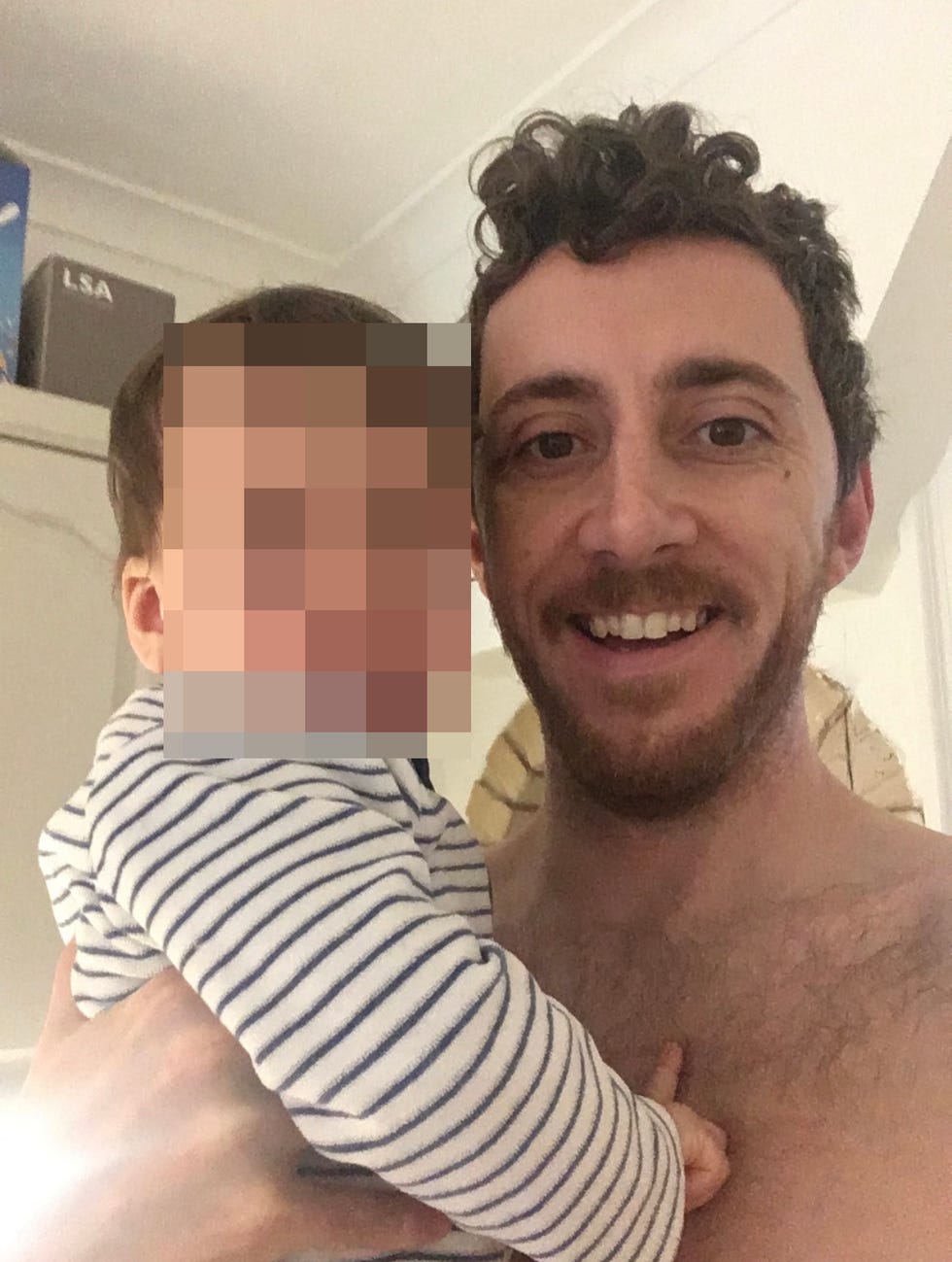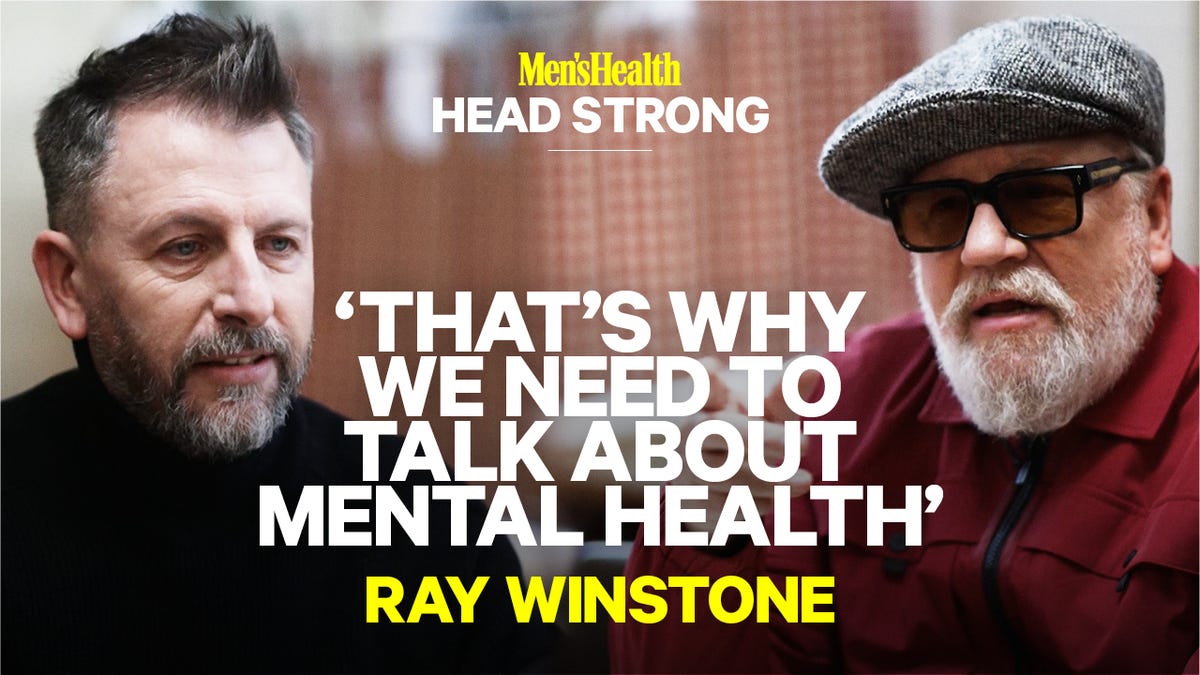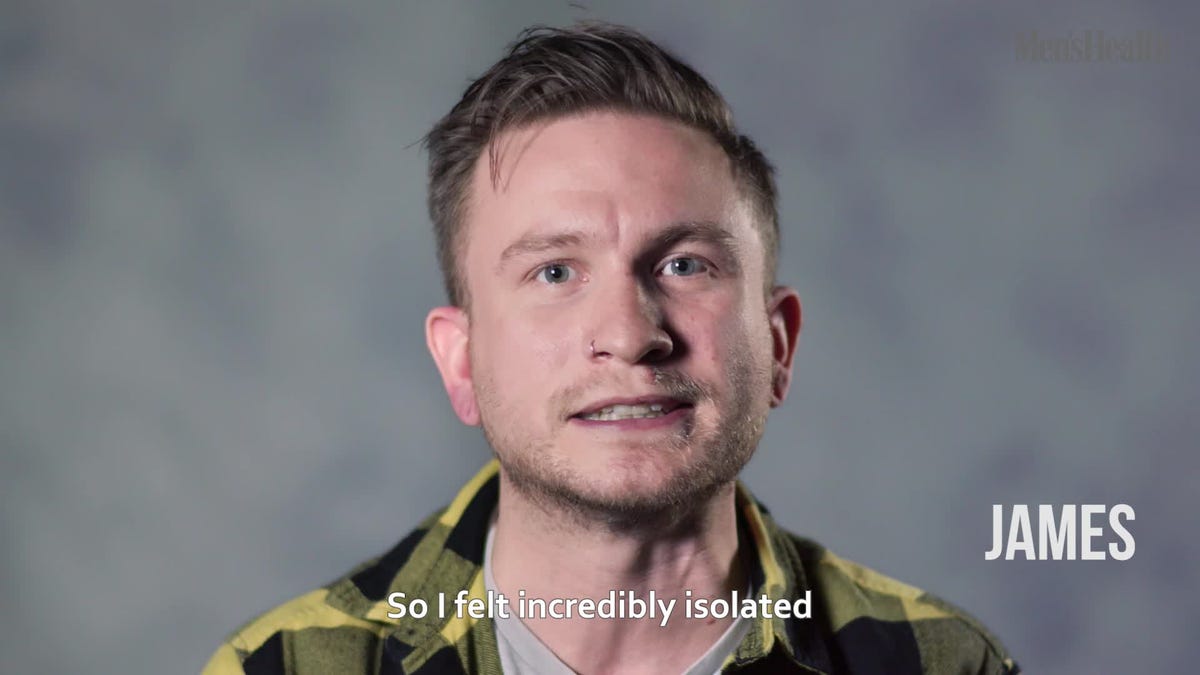Around six months after my first child was born, I found myself sitting outside my house looking down the street for approaching blue lights, wondering how the hell it had come to this. It was the middle of the night, one of many pocked with anxiety and panic attacks.
I had no history of mental health problems, but my debutant year as a parent coincided with a debilitating period of illness that I just didn’t see coming.
When I was a kid, they’d have called it a nervous breakdown. But in the 21st century, we have a more forensic vocabulary to describe it. Anxiety. Depression. Panic disorder. Suicidal ideation. Derealisation – a particularly cheerful spell when I thought the world wasn’t real and my entire family were imposters.
Unpleasant intrusive thoughts were common, but on this particular night it felt like there were hundreds of voices in my head. As far as I could tell, none of them belonged to me.
90% of dads agree that the difficulties that come with fatherhood aren’t taken seriously enough
Through the din, I told myself I was having a psychotic break, that I was a danger to my wife and child. I leapt out of bed, locked myself out of the house and screamed for my wife to call the police. She called an ambulance instead.
I came home from A&E a little before dawn, utterly broken, but with a couple of high-strength sedatives and the strange reassurance that if I was having a violent psychotic break, I wouldn’t have actually stopped to think about it. This was a bad case of anxiety, they said.
The next day, social services called my wife to check that she and our son were okay. I don’t remember any follow-up calls to my number, but I did go to my GP. I joined a six-month waiting list for my local NHS mental health service and saw a private cognitive behavioural therapist. Soon, I was prescribed the antidepressant sertraline, which I’m still on today.
Not the Only One
My experience was something close to a full-English of postnatal mental health problems, but it was far from an isolated case. Around 10% of new fathers experience poor mental health during the perinatal period (through pregnancy and up to a year after birth), compared with 14% of new mothers. The true number, of course, may well be higher. It’s likely that the data is low-balled by men who want to hide the struggles they’re going through.
There is, however, a dawning sense among researchers, care providers and fathers themselves that dads do need help – and much more than they’re currently getting. Becoming a father has real effects on men’s mental health, but they’re minimised, lesser obstacles on the assault course of pregnancy, childbirth and new parenthood.
72% say that being a father is more challenging today than it has ever been
But if we want men to be engaged fathers, supportive partners and all-round healthy humans, we need to accept that a lot of fathers, especially new dads, are struggling.
In a new Men’s Health survey, two-thirds of fathers said the first year of parenthood was harder than they thought it would be. More than half felt overwhelmed. The numbers speak for themselves:
39% of new dads experienced anxiety.22% experienced depression.33% experienced outbursts of anger.28% felt lonely.
I remember prepping myself to support my wife’s postnatal mental health. It came up in our NCT classes. A few family members had a quiet word with me. It never occurred to any of us that I was the one who would struggle. And, in fact, 44% of the men we surveyed said they hadn’t known that men could even experience postnatal depression.
 Supplied by Ian Taylor
Supplied by Ian Taylor
Writer Ian Taylor was unprepared for the challenges that the early days of new fatherhood would present.
Our Changing Brains
It’s a strange disconnect. Because every expectant dad is fluent in the cliches of parenting. You know your life will change in an instant. You know that you’ll be skint. You know it’ll be ‘hard’. But there’s a massive difference between a truism and the truth – and the sudden, visceral enormity of parenthood is not something anyone can really prepare for.
Childbirth itself can be traumatic for men, as much as we’re onlookers in the delivery room, idle and impotent. Researchers from Bournemouth University found that witnessing a difficult birth can affect a man’s mental health and relationships long into the postnatal period.
78% of dads worry about whether or not they are a ‘good’ father
Then comes the lack of sleep, financial stress, relationship strain and social isolation, all while juggling more responsibility than you’ve ever known. Any one of these factors would be enough to test a person’s mental resolve. The weight of them altogether should come with a safety warning. And all the while a father’s body is undergoing changes far more consequential than developing a dad bod.
‘One of the big changes is that testosterone levels decrease by 25% to 30% when men are involved in caring for their infant,’ says James Rilling from Emory University in Atlanta, USA, whose work mixes psychology, behavioural science, anthropology and neuroscience. His new book is called Father Nature and explores ‘the science of paternal potential’.
He says that lower testosterone levels correlate with fathers who get stuck in during those early weeks and months of a child’s life. ‘They tend to affectionately touch their children more. They pay more attention to them and engage in motherese – that simplified, high-pitched baby talk. And all of those things we know are very good for infants.’
18% of dads who found childbirth challenging never discussed it with anyone
But there’s a catch. Testosterone protects against depression and promotes good mood. ‘I think the fact that testosterone levels decrease when men become fathers puts them at increased risk for depression,’ Professor Rilling says. ‘Testosterone will also affect libido. Couples may be less sexually active and that can have a negative impact on relationship quality, so there’s that dynamic, too.’
A man’s brain also changes when he becomes a father. It shrinks. Research shows that men who get involved as caregivers to their babies lose more grey matter, and a 2024 study from the University of Southern California found that those same dads are also more likely to report anxiety, depression and poor sleep.
It’s vaguely reassuring to think that my mental health went down the toilet not because I was weak, uncaring or a generally crap dad, but maybe a consequence of the fact that – like most fathers – I gave a shit. Still, it’s cruel that the fathers most at risk of failing mental health are the same ones who want so badly to be rounded, modern dads. Caregivers, not just providers and disciplinarians.
 Modern Dads
Modern Dads
And this is still a new phenomenon, especially viewed against the span of human history. It wasn’t long ago that everything from night feeds and nappies to coochie-coos and school shoes were not a part of a father’s job description. Now, as gender roles continue to shift, and more women balance careers and parenthood, men are doing the same.
So, in one sense, dads have never had it harder. In another, we’ve never had it so good.
‘There has been a quiet revolution going on over several decades,’ says Jeremy Davies, deputy CEO of the Fatherhood Institute. ‘Men now want and expect to be involved in the hands-on care of their children.’
Women agree, as does society in general. But Dr Davies says there’s a lot of work to be done in the UK to truly support men’s role as caregivers. ‘That’s because our systems – our family policy and services – are still pretty much built around the idea that caregiving is a mother’s domain.
77% of dads say their stress levels were higher than usual in the first year of fatherhood
‘We’re trying to change that. Not to take anything away from mothers, but to try and create systems that recognise this revolution in families. The services that surround us just haven’t caught up yet.’
Dr Davies and his colleagues at the Fatherhood Institute see it as a kind of institutional neglect. When you look closely, it’s hard not to agree. A mother and child’s health records are linkedat birth. A father’s are not. The mother will, quite rightly, receive a six-week health check, which includes questions about her mental health. There are also specialist mother-and-baby units across the country for women who suffer severe mental health issues (although services are horribly overstretched and waiting lists can be up to 19 months).
Related Story
Still, no one in an official capacity asks how the dad is doing. Even if a midwife or health visitor had concerns about a father, there’s nowhere they could formally make a note. ‘Things like the forms that services use are a huge barrier because often there isn’t space to collect the details about fathers,’ Dr Davies says. ‘We need a root-and-branch review of NHS paperwork and IT systems to make sure everything links up.
‘And, more broadly, we need maternity and health services to start addressing men, seeing them as parents and not just as visitors, which is how maternity services still see them, fundamentally.’
56% of dads felt overwhelmed in the first year of fatherhood
Whenever I’ve replayed my own experience back in my head, I’ve never had a sense that I was let down or that more – anything – could have been done to better preserve my sanity in that first year. It’s mostly shame that I didn’t do better, that caffeine and stoicism weren’t enough to carry me through, that my wife had to look after me and not the other way around. Other dads have told me they wanted help but didn’t know who to ask. Lots of guys just put up and shut up, because they don’t want to raise something as silly as their feelings when their partners have gone through pregnancy and childbirth.
‘I remember asking for some paracetamol in hospital,’ one friend tells me when I raise the subject in a group chat. ‘By day three of no sleep, I was on the edge. The entire room stared at me in disgust.’
‘Our local school sets up WhatsApp groups for each class each year,’ says another. ‘Only mums! I think it’s also the fact that we’re expected to do everything that the mums do for the kids but still have to go out to work while not being able to say, “I need help” or “I’m tired”.’
Respondents in our survey shared similar frustrations and anxieties. ‘I really dislike how most of the discussion around parenting automatically defaults to mothers,’ one dad says. ‘It’s the sheer relentlessness of everything, you lose so much of yourself,’ says another.
 Supplied by Ian Taylor
Supplied by Ian Taylor
The writer this summer: ‘Becoming a father is the best thing I’ve ever done.’
The Good Endures
Now might be a good juncture to pause and say that becoming a father is the best thing I’ve ever done. Even though there were points when I didn’t think I’d survive that first year, I still remember it as a kaleidoscopic fever dream, where the moments of joy were every bit as intense as the panic attacks. And it’s the good stuff that tends to endure.
‘I don’t want to paint it all as dark because I don’t think it is,’ agrees Dr Davies. ‘The evidence suggests that most men cope very well with this, but even the ones who cope could probably benefit from better information and options for support.’
There are other moments when things get tough. The number of parents falling into debt to cover childcare costs has increased by almost a third in 2024; 46% of parents find themselves in debt or use their savings to pay for childcare – a 30% increase from 2023.
44% of dads have experienced anxiety or concern over their ability to bond with their child
There’s also emerging data to suggest that fathers experience a second dip in their mental health around the time their children go to secondary school or begin adolescence. But experts agree that the perinatal period is the best opportunity to support dads.
‘That’s the point at which policies and services should be designed around supporting men to get involved,’ Dr Davies says. ‘That’s the point at which you can create the conditions for mothers and fathers to collaborate as parents. And if you can get that done in the early stages of parenthood, then the evidence shows that it will then stick and fathers will be involved and build from there.’
Better paternity leave provision should be the starting point, Dr Davies says. ‘That’s crucial because it would set up in everyone’s minds very clearly that fathers have a role and need time and space to be at home for some of the baby’s first year.’

Statutory paternity leave allows fathers to take up to two weeks off if you’ve been with the same employer for long enough. Those eligible receive £185.03 a week or 90% of their average earnings, whichever is lower. Self-employed fathers get nothing.
A 2024 survey by the parenting charity Pregnant Then Screwed found that 70% could not afford to take the full paternity leave allowance. Take-up of shared parental leave, where parents can split some of their statutory leave and pay, remains low at 2%.
In our survey, 83% of dads said they would have liked to take a longer period of parental leave after the birth of their child or children. Financial pressures were the most commonly stated reason for cutting parental leave short (80% of respondents), followed by fear of losing work opportunities (33%) and fear of judgment from others (11%). Only 3% of dads said they didn’t feel needed at home.
29% feel uncomfortable asking other dads for help
The other common need among dads, whether they’re experiencing mental health struggles or not, is some kind of peer support network. It’s evident in research, in the work of charities and community groups set up to support fathers and in plain old common sense. We need to vent. We need to hear that it’s not just us.
For me, there was sanctuary in the group chat. A group of dads I met at NCT classes who all supported each other through early parenthood and still check in on each other to this day whenever a fresh parenting curveball is thrown our way.
I was also lucky that when I became ill, my natural instinct was not to bottle it up but to ask for help. I received it not just from my GP and my super-heroic wife. My boss was incredibly understanding, as were my colleagues. Family and friends rode to my rescue more than once, as did Uber drivers and strangers on trains when waves of panic brought me to my knees.
Seven years and another child later, I’m still on antidepressants but they’re more of a safety net than a crutch. I love being a dad and recently quit my job so that I could spend the summer with my kids before our youngest starts school.
Related Story
My view is the same as that of the experts. As a society, we want fathers to be more present and involved than they have been in all of human history. Dads want that, too. But that changing role needs to come with policies, care and support. If for no other reason than the obvious: when dads are supported, mothers and children benefit, too.
‘The way I look at it is, men have within them an incredible capacity to be nurturing and highly involved in caregiving,’ says Professor Rilling. ‘It’s just a question of whether those systems get activated, whether our society is structured in a way that puts them in contact with infants and allows them that experience.’
Men’s Health is backing the Fatherhood Institute’s campaign for all new dads to receive a free NHS health check. Find out how you can get involved.
